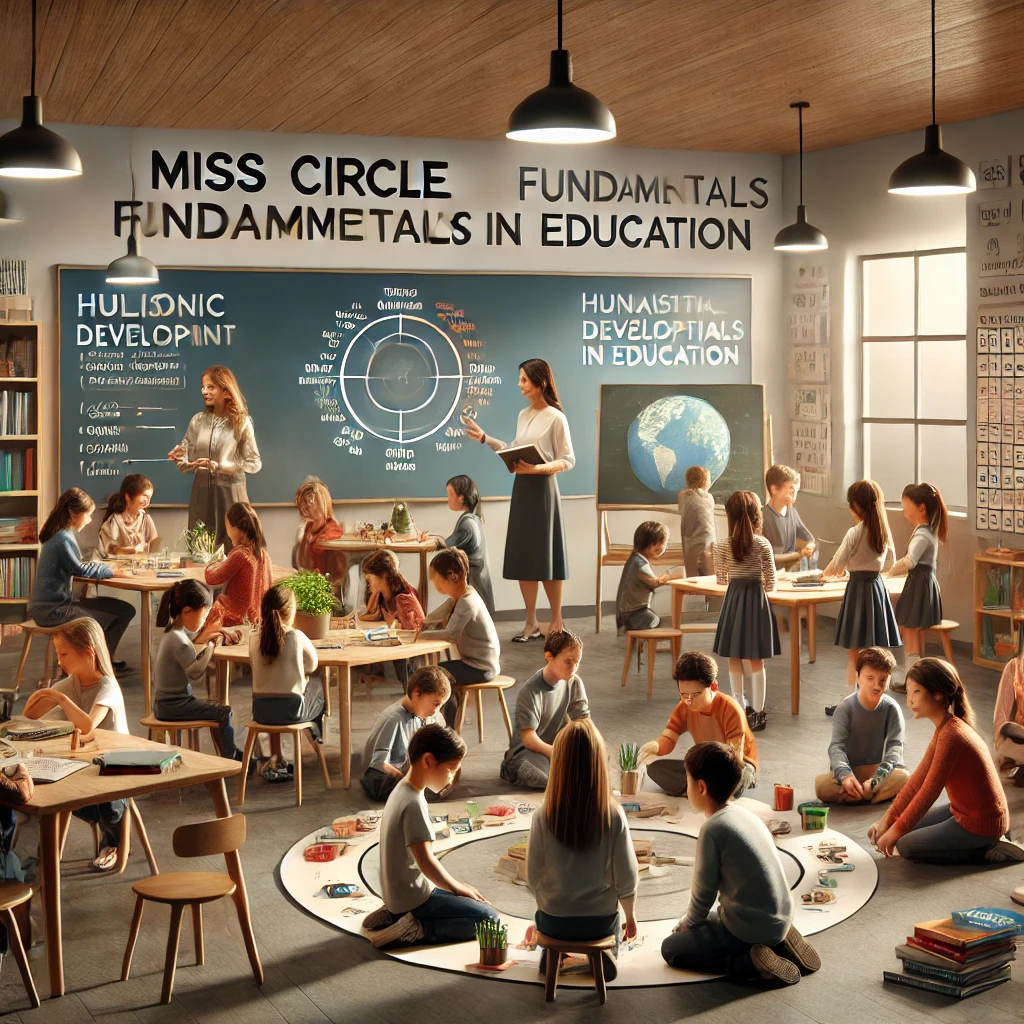Education is the foundation of personal growth and societal advancement. Over the years, teaching methods and educational practices have evolved, influenced by cultural shifts, societal needs, and technological advancements. Among the various approaches to education, Miss Circle Fundamentals stands out, focusing on a holistic, student-centered approach. These principles aim to nurture not just academic success but also emotional, social, and ethical growth in students.
In this article, we’ll explore the key elements of Miss Circle Fundamentals and how these practices can create a more engaging and effective education system.
The Core Philosophy of Miss Circle Fundamentals
Miss Circle Fundamentals is built on the idea that education should be more than the mere transfer of knowledge. It should be an interactive, dynamic process that fosters critical thinking, responsible citizenship, and personal growth. At its heart, Miss Circle Fundamentals revolves around three core principles:
- Holistic Development: Education should cultivate not only the mind but also the emotional and moral aspects of a student, encouraging well-rounded growth.
- Student-Centered Learning: Students should play an active role in their education. Teachers serve as guides, helping students discover knowledge through exploration and inquiry rather than dictating information.
- Collaborative Learning: Effective education thrives on collaboration. Students and teachers should engage in discussions, work together, and share ideas to enhance the learning experience.
Let’s dive deeper into these principles and how they can transform modern education.
Holistic Development: Educating the Whole Child
A central idea of Miss Circle Fundamentals is the focus on holistic development. This approach emphasizes that education should go beyond academics to nurture emotional intelligence, social skills, and ethical values.
Academic Excellence: While academic success is important, Miss Circle encourages critical thinking, creative problem-solving, and deep learning. Students are taught to understand concepts thoroughly and apply them in real-life situations, rather than just memorizing facts.
Emotional Intelligence: Emotional well-being is vital to student success. Miss Circle Fundamentals promotes the development of self-awareness, empathy, and resilience. This can be achieved through activities that focus on emotional expression, managing stress, and developing positive relationships.
Social Skills and Ethics: In today’s world, working well with others is essential. Miss Circle emphasizes collaboration, respect, and ethical behavior. Students learn to appreciate different perspectives and engage in discussions that foster understanding and mutual respect.
Student-Centered Learning: Empowering the Learner
Traditional education often views the teacher as the central figure of authority, with students passively absorbing knowledge. In contrast, Miss Circle Fundamentals places the student at the center of the learning process.
Active Learning: Students are encouraged to be active participants in their education, asking questions, seeking answers, and engaging with the material in a hands-on, meaningful way. Teachers act as facilitators, guiding students in exploring subjects that interest them.
For instance, instead of simply lecturing, teachers can introduce topics and allow students to conduct their research or work in groups. This approach fosters a deeper understanding of the subject, as well as critical thinking and problem-solving skills.
Inquiry-Based Learning: Miss Circle Fundamentals emphasizes inquiry-based learning, where students learn by posing questions and seeking solutions. This encourages curiosity and helps students develop strong analytical skills.
Personalized Learning: Every student is unique, with different strengths, interests, and learning styles. Miss Circle encourages personalized learning, where education is tailored to each student’s individual needs. This can be done through customized lesson plans, flexible learning paths, or one-on-one mentoring, ensuring that each student reaches their full potential.
Collaborative Learning: Building a Learning Community
Collaboration is a key element of Miss Circle Fundamentals. The belief is that students learn best when they work together in an environment that encourages the exchange of ideas.
Group Work and Discussions: In a collaborative classroom, students often work in groups, learning how to communicate effectively, share responsibilities, and solve problems together. This not only deepens their understanding of the material but also builds teamwork and leadership skills.
Teacher-Student Partnership: Miss Circle also encourages a strong partnership between students and teachers. Teachers are mentors, working alongside students to create an enriching learning experience. By listening to student feedback and adapting lessons to meet their needs, teachers foster a sense of ownership in students over their education.
Peer Learning: Students are encouraged to learn from each other through peer learning, where they support and teach one another. This strengthens knowledge retention and builds a supportive learning community where everyone feels valued.
How to Implement Miss Circle Fundamentals in the Classroom
Incorporating Miss Circle Fundamentals into education requires a shift from traditional methods toward more flexible, student-focused approaches. Here are practical steps to implement these fundamentals:
- Encourage Student-Led Learning: Implement inquiry-based projects and open-ended assignments that allow students to take control of their learning.
- Integrate Social and Emotional Learning: Include activities that build emotional intelligence, such as group discussions, role-playing, and exercises in empathy.
- Foster Collaboration: Create opportunities for teamwork between students and teachers to build a dynamic learning environment that encourages interaction and idea sharing.
- Personalize Learning: Adapt lessons to meet individual student needs, offering personalized learning paths, flexible pacing, and varied resources to engage different learning styles.
Conclusion
Miss Circle Fundamentals offers a refreshing approach to education, focusing on the whole child, fostering active learning, and promoting collaboration. By embracing these practices, educators can create a more meaningful, inclusive, and effective learning environment that prepares students not only for academic success but for life beyond the classroom.
Whether you’re a teacher, administrator, or parent, incorporating the Miss Circle approach into education can help nurture well-rounded, curious, and engaged learners who are ready to make a positive impact on the world.

